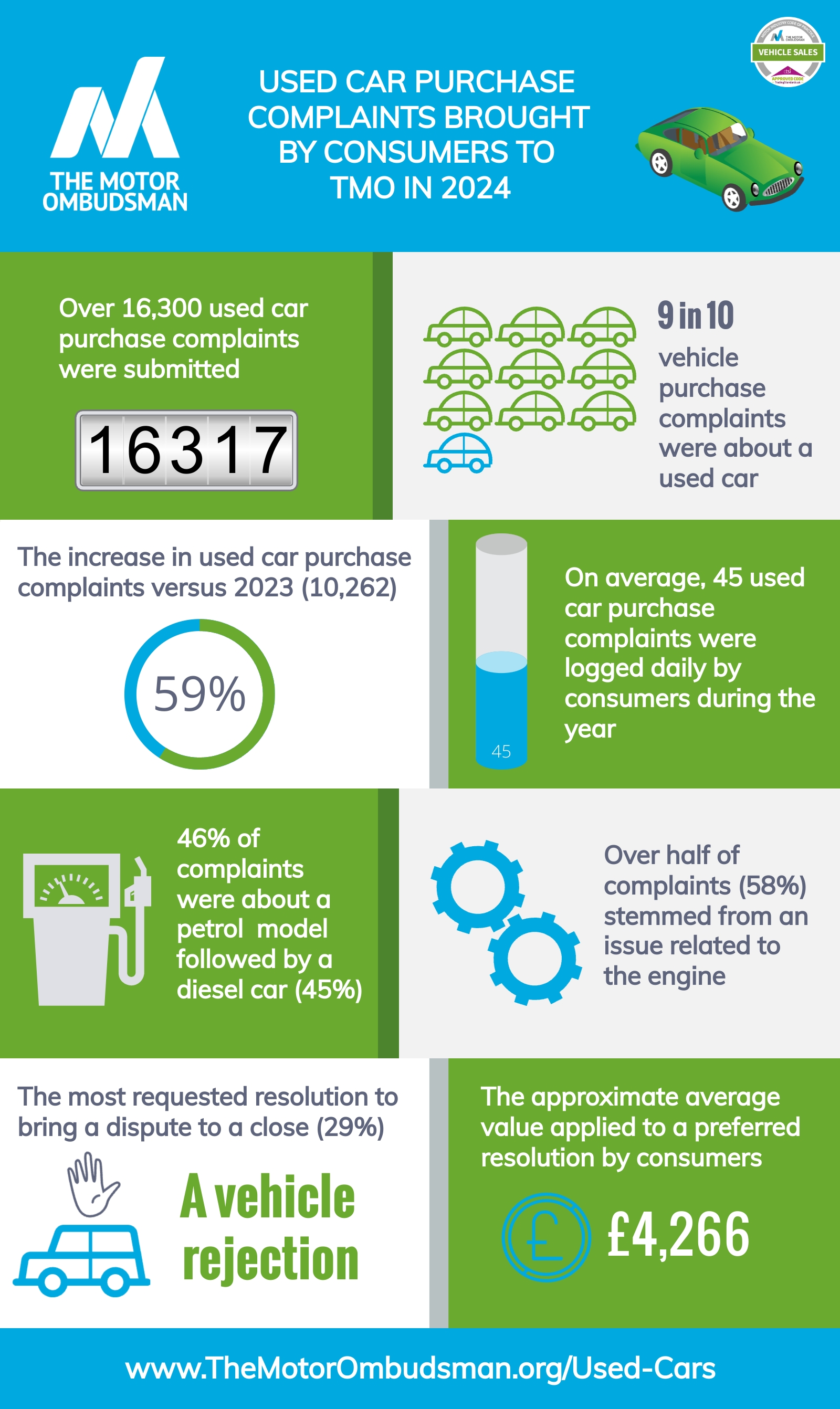A new Insight Report from The Motor Ombudsman has revealed that disputes related to purchasing a used car from a retailer made up 40% of all new cases opened in 2024.
This figure remains consistent with previous years, with 41% of disputes recorded in 2023 and 38% in 2022.
Despite an overall rise in motoring complaints, largely driven by cost-of-living pressures, increased secondhand vehicle sales, and growing consumer awareness of The Motor Ombudsman’s free dispute resolution service, used car disputes still accounted for less than 1% of all used vehicle transactions in the UK last year, indicating that the vast majority of consumers remain satisfied with their purchases.
As demand for electric vehicles (EVs) grows, petrol and diesel cars continue to dominate the used market. According to the report, 91% of complaints about used cars in 2024 related to petrol or diesel models, followed by hybrids (5%) and battery electric vehicles (4%).
Among the 16,300 cases logged under The Motor Ombudsman’s Chartered Trading Standards Institute (CTSI)-approved Vehicle Sales Code, the leading cause of disputes (58%) was engine-related issues. Complaints ranged from individual component failures to complete powertrain breakdowns, with specific concerns including snapped timing chains, blown turbochargers, coolant leaks, and faulty spark plugs.
The second most common reason for disputes was dissatisfaction with customer service (17%). Complaints often involved retailers failing to honor agreements, missing documentation at the time of sale, or discrepancies in a vehicle’s history compared to what was disclosed.
Bodywork and fixture issues accounted for 7% of cases, with consumers reporting problems such as leaking tailgates, peeling paint, and faulty bonnet latches posing potential safety hazards. Transmission (4%) and electrical system faults (3%) rounded out the top five reasons for complaints.
When seeking a resolution, nearly a third (29%) of consumers wanted to reject the car outright, often in exchange for an equivalent model at no additional cost. Another 26% sought a full refund, while 18% preferred a free repair to address the identified faults.
To reduce the likelihood of disputes, The Motor Ombudsman recommends that used car buyers:
- Purchase from accredited retailers listed on The Motor Ombudsman’s Garage Finder.
- Consult The Motor Ombudsman’s Used Car Buying Guide.
- Review a car’s MOT history, service records, and recall status, and verify that no outstanding finance is attached to the vehicle.
- Conduct test drives to check for unusual noises and assess whether the vehicle meets their needs.
Bill Fennell, chief ombudsman and managing director of The Motor Ombudsman, stressed the importance of research before purchasing a used car. “Used cars provide a cost-effective alternative to buying new, but they come with varying histories and conditions. As our report highlights, engine-related issues are the primary concern, and these may not always be immediately apparent.”
He also advised consumers to address issues with the seller first before escalating disputes to an impartial third party like The Motor Ombudsman. “Ensuring that businesses have a fair chance to resolve problems is key to achieving satisfactory outcomes for both consumers and retailers.” The full Insight Report is available at The Motor Ombudsman website.

















Login to comment
Comments
No comments have been made yet.